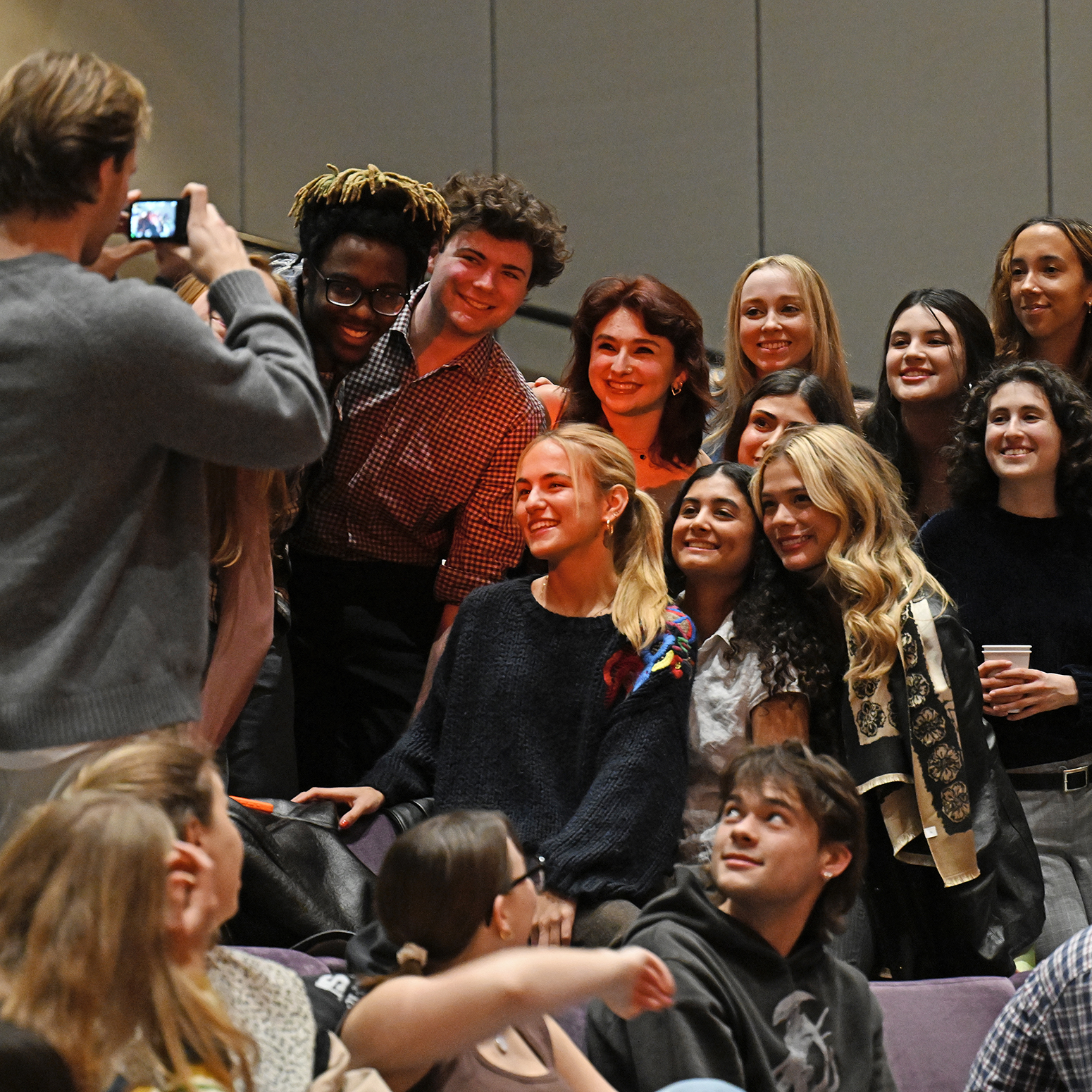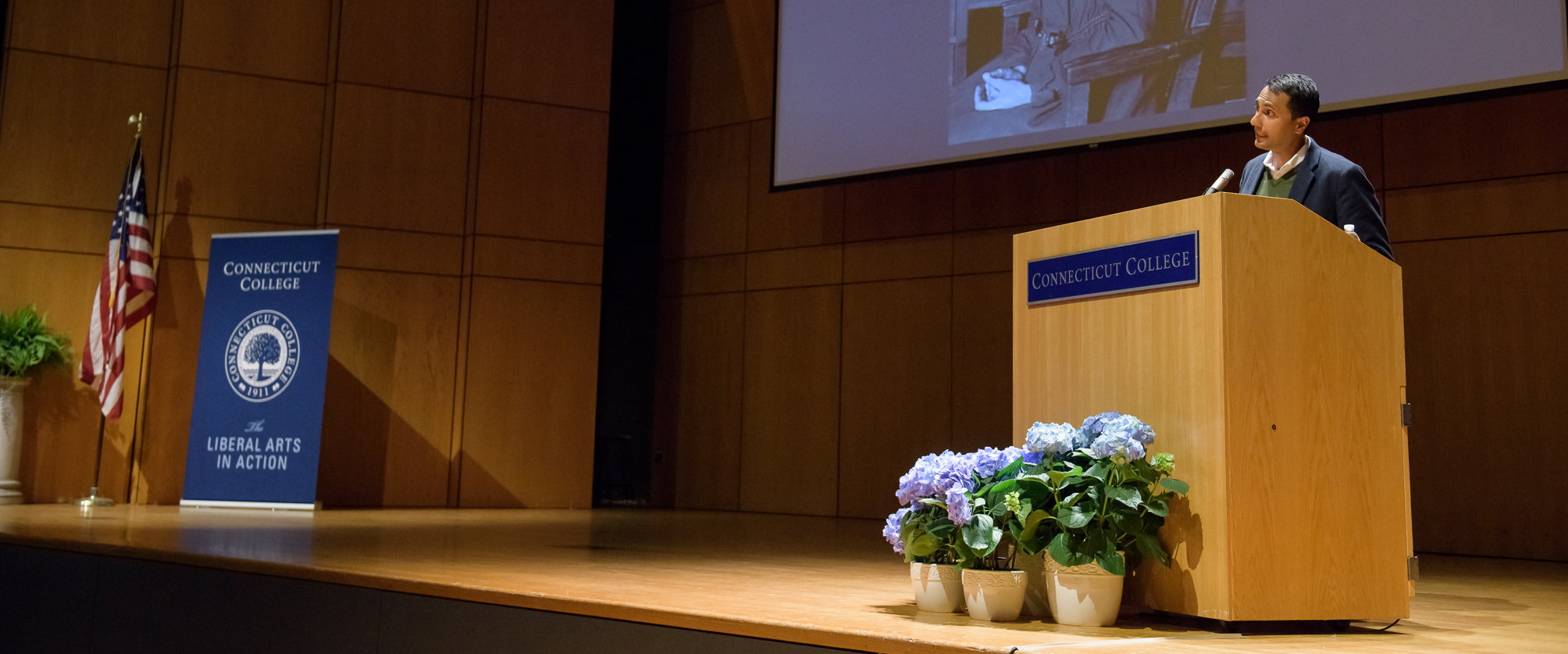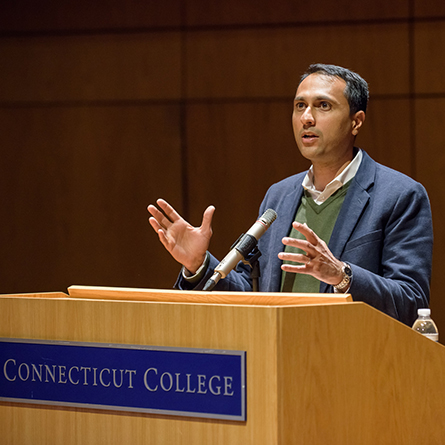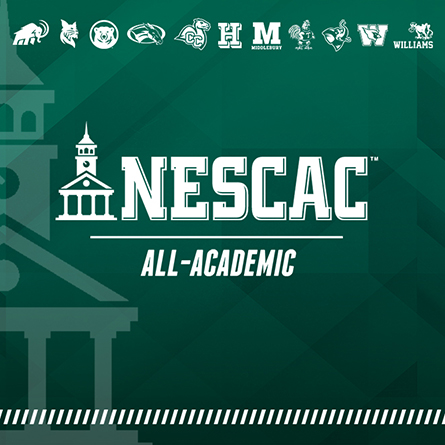
President’s Distinguished Lecture Series
Eboo Patel, founder and president of Interfaith Youth Core, visits campus.
Internationally renowned author and speaker Eboo Patel told Conn students that they were in a “magic space.”
Delivering the second annual installment in the President’s Distinguished Lecture Series on April 25 in Evans Hall, Patel told the audience that a college campus is where many inspirational leaders formalize their beliefs and find their voice.
“So many of [my role models] were shaped when they were 19, 20, 21 years old,” Patel said. “You’re at that stage. There is nothing like being 20 on a college campus with the ideas and the people and the encouragement around you all the time.”
Patel, who also attended classes and spoke with students, is the founder and president of the Chicago-based international organization Interfaith Youth Core, which works with colleges, universities and community organizations worldwide to establish an atmosphere of religious tolerance and interfaith cooperation. The former Rhodes Scholar at Oxford University is the author of numerous books, including Acts of Faith: The Story of an American Muslim, the Struggle for the Soul of a Generation and Sacred Ground: Pluralism, Prejudice, and the Promise of America.
The President’s Distinguished Lecture Series brings notable figures to Connecticut College each year for a public presentation and informal meetings with students, faculty and staff. Last year's inaugural lecture was given by Bryan Stevenson, author of Just Mercy: A Story of Justice and Redemption.
During her introduction, President Katherine Bergeron welcomed Patel and his colleague, Noah Silverman ’04, who serves as IFYC’s senior director of academic initiatives. In her remarks, Bergeron highlighted the shared values of Connecticut College and IFYC, and spoke of the need for Conn graduates to be prepared for professional collaboration with a diverse range of people.
“The work of the Interfaith Youth Core connects with the mission of Connecticut College,” Bergeron said. “They’re highlighting the central importance of interfaith understanding and advancing critical dialogues about social differences. I hope their presence on campus will help us advance our own goal of building an even stronger and more just community that empowers every student, faculty and staff member to reach their full potential.”
Silverman first met Patel during his senior year at Conn when Patel gave a talk on campus. Silverman was drawn to IFYC because the organization focuses on action and service. He emphasized the significant impact his time at Conn had on him.
“Many of my courses in religious studies remain hugely instrumental in my thinking and now in the work of the organization,” Silverman said. “I was able to find my life’s calling.”
Patel is a former member of President Barack Obama’s Advisory Council on Faith-Based and Neighborhood Partnerships, and a recipient of the Guru Nanak Interfaith Prize. He began his lecture by crediting Conn for playing a key role in inspiring the work that has come to define his career as an interfaith leader. In 1999, Patel attended a religious studies retreat at Conn and the experience helped pave the way toward the founding of Patel’s organization.
“[Former Conn professor Patrice Brodeur] was a young professor who knew everything about every religion, spoke seven languages, and truly cared about his students and was active in the community,” Patel recalled.
“I told him about my idea for the youth core, and he convened some smart people from the area to meet with me on the Connecticut College campus to talk about how to make it work. That was a powerful moment and I think very much of this school as an early incubator for the work we do now.”
Patel explained that his worldview and vision of how religion should function in his ideal America have been shaped by a handful of people, ideas and stories that have served as guiding principles, or “lanterns” for him. He listed an eclectic mix of figures ranging from Martin Luther King Jr. to political activist Jane Addams to legendary folk singer Woody Guthrie. But according to Patel, the first time he began to genuinely appreciate religion as a vehicle for change was when he learned about Dorothy Day, who co-founded the Catholic Worker Movement in the early 1930s.
She saw in her religion, Patel said, an obligation to live a Spartan life, and one of service.
He said that Day’s commitment to assisting the less fortunate inspired him to spend three months in a Catholic Worker house in his 20s, helping the homeless and serving the local community. But it also impelled him to conduct a more intimate appraisal of his own Muslim faith.
“I was so taken by Dorothy Day’s philosophy and dedication to helping the poor and doing without life’s luxuries that I tried to live [the way she did] in a Catholic Worker house,” Patel said.
“She managed that lifestyle for 47 years. I lasted three months. But I learned to take those eyes that Dorothy Day had for Catholicism, and I asked those questions across all religious traditions, for the first time even applying that process to Islam.”
Recalling his 20s, Patel reminded students how precious it is to be living in this “magic space.”
“I’m forty-one, and I’d trade places with you in an instant,” he said.


